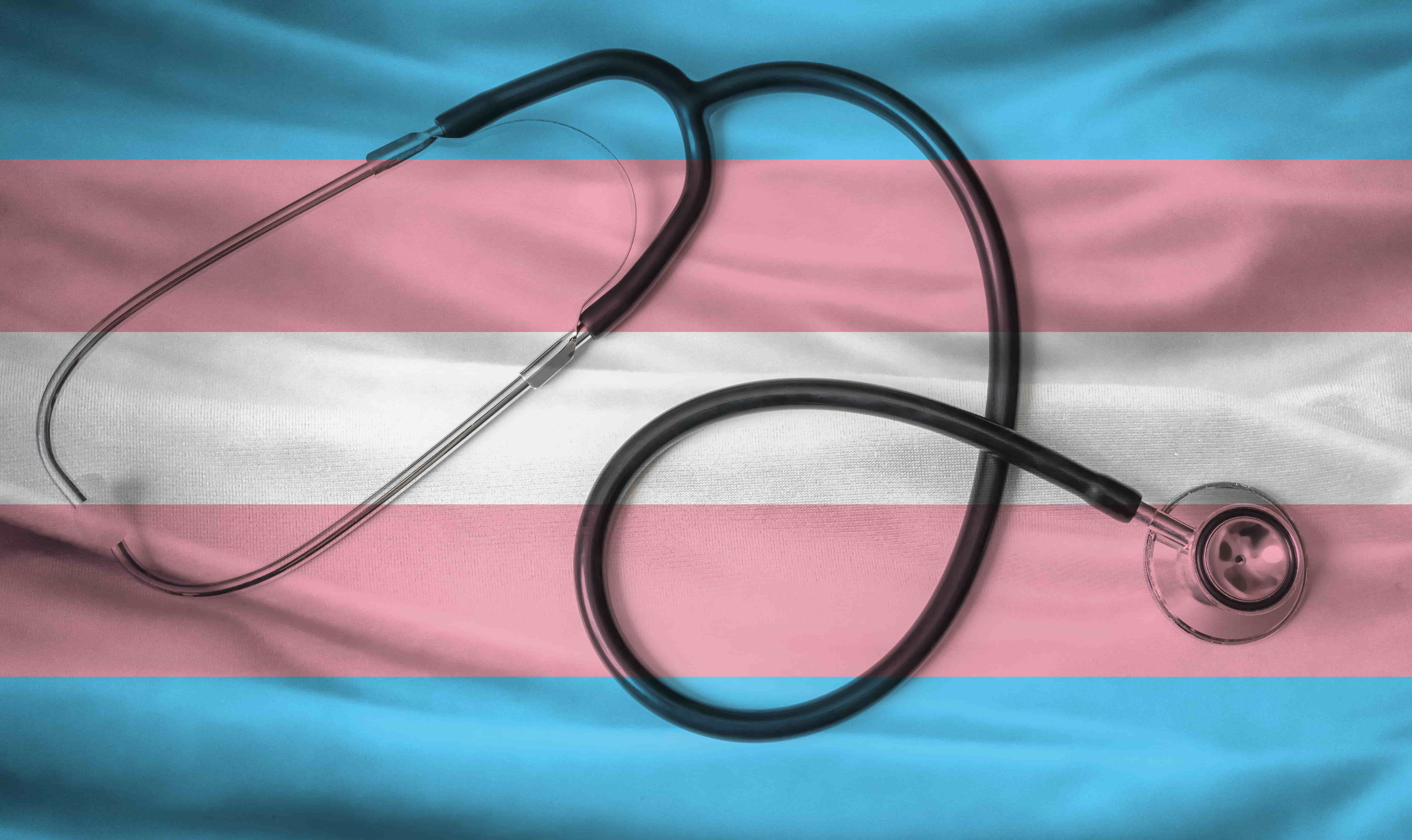A Georgia County Spent Millions to Deny a Trans Deputy Health Care. It Failed.
A federal appeals court rebuffed a Georgia county's attempt to avoid providing insurance coverage to a transgender sheriff's deputy.

A federal appeals court ruled that exclusions in health insurance plans barring coverage for gender-affirming care for transgender individuals violate Title VII of the Civil Rights Act, the federal law prohibiting sex-based discrimination.
In a May 13 ruling, the 11th U.S. Circuit Court of Appeals voted 2-1 to uphold a lower court’s 2022 ruling that Houston County, in rural Southern Georgia, discriminated against Anna Lange, an 18-year veteran of the county’s sheriff’s office, when it refused to amend a decades-old exclusion on gender-affirming care in its employee health insurance plan.
Under the exclusion, county dollars are prohibited from being used, either directly or indirectly through insurance, to pay for treatments meant to assist someone in transitioning from one gender to another.
Following a two-day trial after that ruling, a jury found that Lange had been unfairly discriminated against due to the insurance exclusion, and awarded her $60,000 in damages.
Houston County appealed the lower court’s decision to the 11th Circuit, seeking to overturn it. The appeals court subsequently found that the that a health insurance provider can be held liable under Title VII for denying coverage for surgical interventions — which might otherwise be offered to cisgender individuals — due a person’s transgender identity.
Additionally, the 11th Circuit found that the lower court did not abuse its discretion when it granted a permanent injunction blocking the county from enforcing the health plan exclusions for gender-affirming care.
Referencing Supreme Court precedent finding that anti-LGBTQ discrimination in the workplace is inherently a form of sex-based discrimination, the appeals court found that the insurance exclusion in Houston County’s plan was a form of unlawful discrimination.
“The Exclusion is a blanket denial of coverage for gender-affirming surgery,” Circuit Judge Charles Wilson wrote for the 11th Circuit. “Health Plan participants who are transgender are the only participants who would seek gender-affirming surgery. Because transgender persons are the only plan participants who qualify for gender-affirming surgery, the plan denies health care coverage based on transgender status.”
As of 2023, Houston County had spent nearly $1.2 million fighting against providing insurance coverage for gender-affirming care — three times the county’s annual physical and mental health budget, according to ProPublica, and more than the estimated $20,000 that it would have spent to cover Lange’s requested surgical procedures. The legal costs have only continued to escalate since then.
On top of that, no other employee in the rural county has requested coverage for gender-affirming surgery, so continuing to appeal the lower court’s decision has already cost the county more than it would have had they simply eliminated the insurance exclusion, as noted by journalist Erin Reed.
The 11th Circuit’s decision is the first by a federal appellate court to affirm that it is unlawful for an employer to discriminate against transgender people in an employee health plan.
The decision is immediately binding on employers in Georgia, Florida, and Alabama.
The decision marks the second victory in recent weeks for transgender people attempting to gain coverage for transition-related health treatments.
Two weeks ago, the 4th U.S. Circuit Court of Appeals upheld two lower court decisions finding that denying coverage for gender-affirming treatments was discriminatory. As a result, Medicaid recipients in West Virginia, and state employees in North Carolina and their dependents, must be afforded coverage for treatments deemed medically necessary, and that trans-specific exclusions in insurance plans violate the principle of equal protection under the law.
Lange celebrated the court’s ruling as a victory not only for her, but other transgender people who are denied access to transition-related care. According to the U.S. Transgender Survey, about one-quarter of transgender people in the United States have been denied coverage for gender-affirming care, with 55% being denied coverage for surgical procedures.
“I have proudly served my community for decades and it has been deeply painful to have the county fight tooth and nail, redirecting valuable resources toward denying me basic health care — health care that the courts and a jury of my peers have already agreed I deserve,” Lange said in a statement. “I’m pleased to see that yet another court has deemed those efforts to be unfair and illegal.”
Support Metro Weekly’s Journalism
These are challenging times for news organizations. And yet it’s crucial we stay active and provide vital resources and information to both our local readers and the world. So won’t you please take a moment and consider supporting Metro Weekly with a membership? For as little as $5 a month, you can help ensure Metro Weekly magazine and MetroWeekly.com remain free, viable resources as we provide the best, most diverse, culturally-resonant LGBTQ coverage in both the D.C. region and around the world. Memberships come with exclusive perks and discounts, your own personal digital delivery of each week’s magazine (and an archive), access to our Member's Lounge when it launches this fall, and exclusive members-only items like Metro Weekly Membership Mugs and Tote Bags! Check out all our membership levels here and please join us today!































You must be logged in to post a comment.